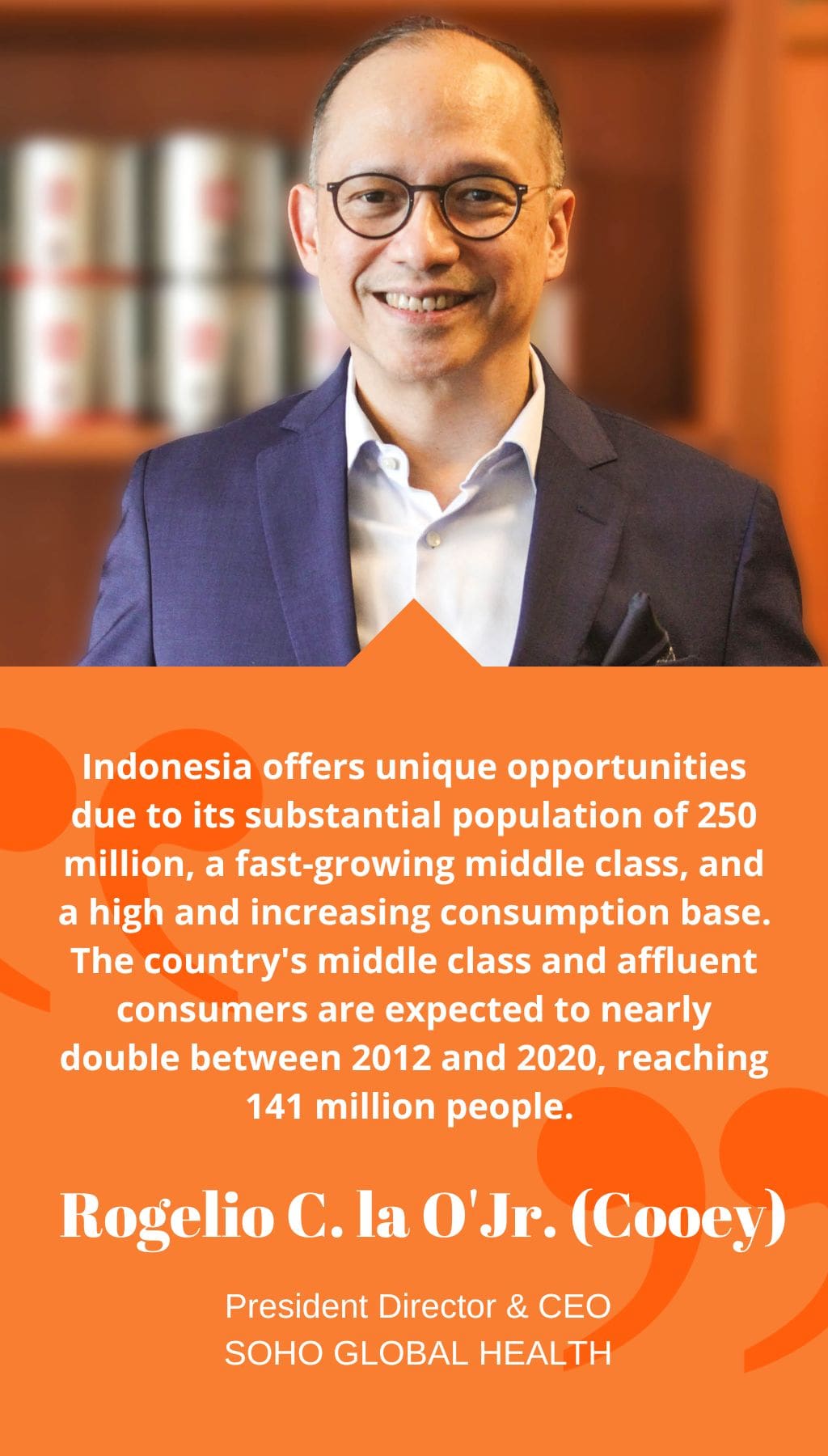
- Indonesia | 25 June 2015

Can you provide a brief background of Soho Global Health (SGH)?
Soho Global Health (SGH) was founded in the late 1940s and initially focused on supplying injectable products to the market. Over time, the company diversified its product range to include tablets, capsules, and over-the-counter (OTC) products. SGH has established a strong presence in both the prescription and consumer health space. In 2013, SGH entered into a strategic joint venture with Fresenius Kabi, a German global pharmaceutical player, with the aim of becoming a leader in intravenous (IV) therapy drugs and infusion solutions in Indonesia. In recent years, SGH has also expanded into related businesses such as multi-level marketing of health supplements and medical devices. While currently a privately owned company, SGH has a long-term objective of becoming publicly listed.
What key elements are in place to reach the five-year goal of becoming a publicly listed company?
SGH has several key elements in place to achieve its goal of becoming a publicly listed company within the next five years. Firstly, the company is vertically integrated, which means it covers the entire process from product development to manufacturing, commercialization, and distribution. This integration provides a fundamental strength for SGH. The company also benefits from a strong and motivated management team that combines local and international talent. Furthermore, SGH has recently entered into a strategic investor partnership that will collaborate closely with the company, driving organic and inorganic growth. Additionally, SGH’s product portfolio has a strong emphasis on “natural” medicine, using evidence-based natural products as a unique differentiating factor. SGH has a close partnership with Soho Flordis International, a global company based in Australia, which offers natural products marketed worldwide. This partnership allows SGH to leverage Soho Flordis International’s network, research and development capabilities, and sales and marketing platform to promote natural ingredients from Indonesia on an international scale.
What is the company’s potential for international growth?
While maximizing business opportunities within Indonesia is a priority, SGH also has a strategy in place for international expansion. The company has already made selective investments in ASEAN countries, but thanks to its close partnerships in Australia, the United States, and Europe, SGH already has a global presence to some extent. Through its collaboration with Soho Flordis International, SGH has the opportunity to tap into their network and expertise in research and development, as well as their sales and marketing platform. This positions SGH well for potential international growth and the promotion of Indonesian natural ingredients on a global scale.
What are some of the opportunities as well as challenges in the Indonesian market?
Indonesia offers unique opportunities due to its substantial population of 250 million, a fast-growing middle class, and a high and increasing consumption base. The country’s middle class and affluent consumers are expected to nearly double between 2012 and 2020, reaching 141 million people. This presents an attractive demographic background for SGH, which aims to cater to the sophisticated needs of this burgeoning consumer class. However, challenges such as infrastructure issues, traffic, and typical emerging market problems exist. Additionally, the pharmaceutical industry in Indonesia is fragmented and highly competitive, with many strong local players. These companies have built formidable franchises and brand equities, often with the support of doctors’ prescriptions. While the industry poses challenges, the long-term opportunities in Indonesia outweigh the short-term challenges, making it a promising market for companies like SGH.
Do you have a final message for our readers?
Apart from China and India, Indonesia presents one of the biggest opportunities in this part of the world over the next five to ten years. It is crucial for companies to focus on the long-term opportunities rather than being solely concerned with short-term challenges. By planting the seeds today, companies like SGH can make a significant difference tomorrow. The growing population, expanding middle class, and increasing consumption base in Indonesia make it an attractive market for businesses willing to invest in its potential. Despite the challenges associated with infrastructure and competition, companies that adapt to the evolving needs of Indonesian consumers and leverage partnerships and market trends can thrive in this promising market.














